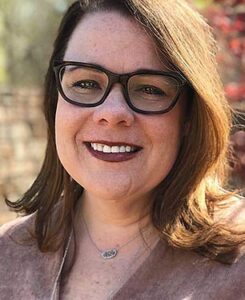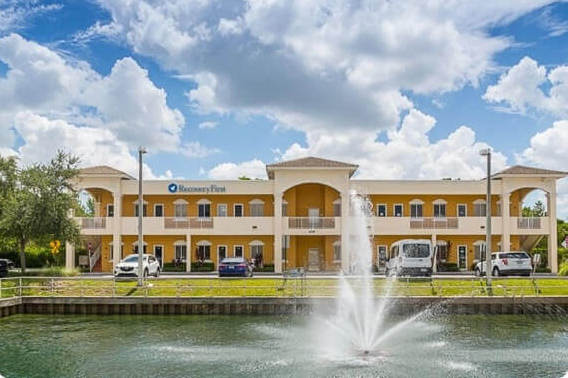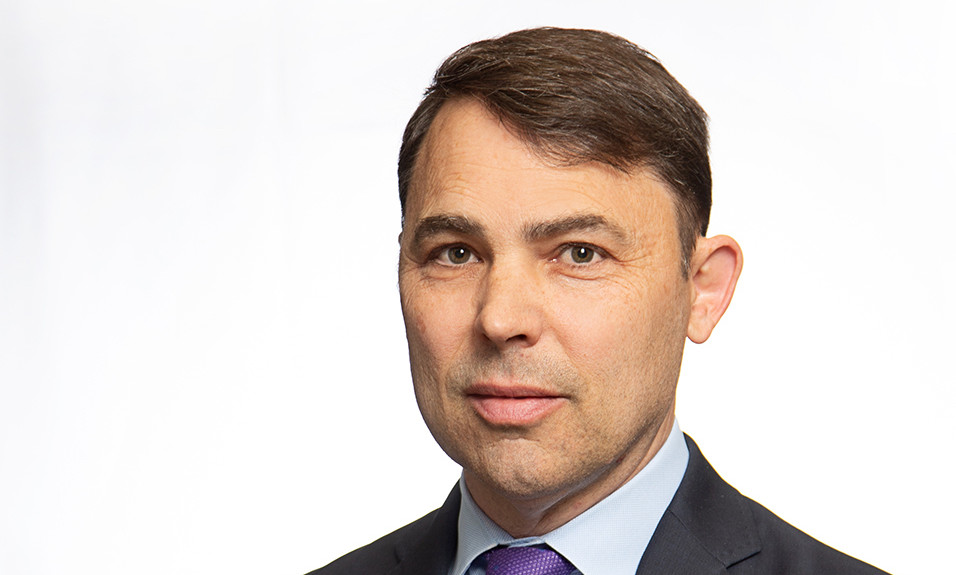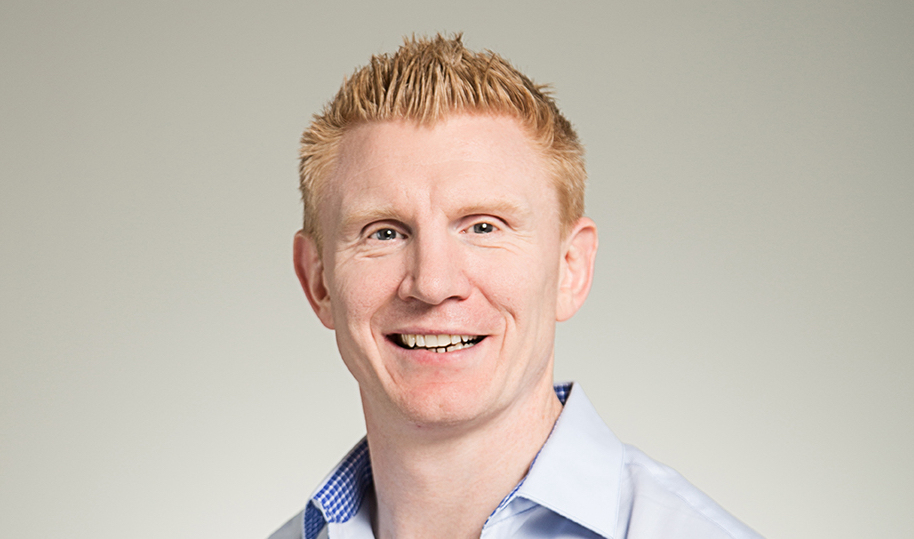Leigh Belcher, administrator of the treatment center A Reprieve for Women, firmly believes in the power of long-term, individualized plans for recovery

By Jennifer Taylor
Inside A Reprieve for Women residential treatment center, there is a wall to which residents gravitate. Called the “surrender wall,” it’s where women in their first step of addiction treatment begin to break through barriers that keep them from treating their illness. For some, the barrier is unhealthy people in their lives; for others, it’s an unexpected health condition that eventually led to opioid addiction. Whatever the barrier, the surrender wall is a powerful first tool used as a visual reminder of things residents must get beyond to get sober.
The wall is just one of many personalized approaches at A Reprieve for Women, a long-term, alcohol and drug addiction treatment center in Tuscaloosa, Ala., that opened in 2016. The home treats women with alcohol and drug addiction and co-occurring disorders. At the helm is administrator Leigh Belcher, LPC-S, who has been there since its opening. Belcher says what sets the program apart are its individual treatment plans that focus on spirituality, community and self. Over a six-month stay, residents experience a 12-step immersion program in addition to daily individual and group therapy rooted in evidence-based treatment practices including cognitive behavioral therapy (CBT) and dialectical behavioral therapy (DBT), along with trauma-informed care. Residents gain day-to-day life coping skills and learn to process and deal with their trauma.
“This is an idea of helping them get exposure to the real world over a period of time and how they could do it sober,” Belcher says.
Belcher spoke with TreatmentMagazine.com about the benefits of the long-term immersive program, why it can be harder for women to seek treatment, and her general outlook on addiction and recovery.
Q: What is the 12-step immersive program like for residents at A Reprieve for Women?
A: Residents get 19.5 hours of 12-step immersion each week. Most of that is done in a group format very purposely—because it’s one thing to tell your program specialist/case manager what they want to hear, but when you do it within the group, there’s a level of accountability.
No one shares their first step, which is quite intensive. They don’t do that until they’re [here] three weeks and they have a level of comfortability. We don’t start their trauma work until after they’ve done their first step, because we try to make sure we’re not overwhelming them. We have the privilege of doing that with the length of the program, which I think is really helpful. They don’t do their fourth and fifth steps in the group. Obviously, they do that with their program specialist, who serves as their sponsor. But the rest of it is all done within the group format.
Oftentimes, even in 2021, men find it easier to separate from their family to seek treatment. We have women here right now that have children, and it’s really difficult for them.”—Leigh Belcher, A Reprieve for Women
[For example], a third step is adventure, which is at about two and a half months. We have a young lady who is from the Arizona area, and rock formations help her feel closer to God and her higher power. So we are taking her to local boulders, where you can overlook and see miles and miles. But first we’re taking her to a covered bridge, because she covers up all of her strengths and just constantly puts herself down. We’re going to take her to do some climbing and talk about how much she could shine.
Q: Is nature an important component to treatment at A Reprieve for Women?
A: It’s a huge part of what we do. I think most people think that nature is an equalizer for people throughout whatever they choose their higher power to be. I think most people feel closer to their higher power while they’re in nature. It gets them out of the house and it gets them immersed in the community. I can’t imagine a better way for a 12-step immersion program to do a third step in the community doing really cool things. Alabama is quite beautiful and has lots of areas that we can use.

Q: How does the combination of the immersive 12-step experience and the six-month stay benefit women?
A: I think it benefits women in early recovery, specifically, because they can often find themselves overwhelmed. That level of being overwhelmed is what’s often taken them back to use. Whether it’s the Department of Motor Vehicles or trying to figure out how to make $60 work for groceries, these are things that have really stressed them out before, or they have no experience with. Being able to help them through the life skills and go with them to the grocery store, and be their first couple of times to help them through the process of the DMV—those things are incredibly important. I think there’s been barriers to treatment, especially for people who have never really individuated from their family of origin—like someone’s always done that for them. That learned helplessness has been very difficult for them to move past in their recovery.
Q: What other life skills are gained at A Reprieve for Women?
A: We’re helping them understand how to navigate healthcare while in recovery by making sure physicians and doctors understand and share that you’re in recovery, [like] not prescribing something; how to stop possibly seeing your family as an ATM machine; and if you really want independence from [family], that includes financial independence; and help [creating] a budget.
We have a huge nutritional piece about how to eat healthy. And then they get to cook. But we’re also teaching them how to make a scrambled egg and things that some of them don’t know. They learn how to clean the house. A lot of them don’t know how to do that. We also teach them coping skills, communication skills through life skills—how to ask for what you want. We teach them how to give back to the community [by] volunteering at a local animal shelter twice a month.
The use of substances is nothing more than a byproduct of the deeper work that needs to be done. It’s a byproduct of the trauma or workload itself.”—Leigh Belcher
Q: The National Institutes of Health says women are more likely than men to face multiple barriers to accessing treatment, and are less likely to seek treatment. Would you agree with that?
A: Yes, 100%. There’s several different reasons. The first one is if women have a family, they feel like they can’t leave their family to go to treatment. Oftentimes, even in 2021, men find it easier to separate from their family to seek treatment. We have women here right now that have children, and it’s really difficult for them. So [the treatment center is] helping them see that they’re investing in their children’s future [through treatment].
We serve people from all around the country. We definitely do a ton of FaceTime just trying to make sure that everyone gets to see their children. It’s a huge part of what we want to see.
Q: Why is a spiritual plan important for residents at A Reprieve for Women?
A: The treatment for people in recovery is spiritual in nature—meaning they have to go outside of themselves to get resources to solve their problems. How do we know this? If they had it within themselves, we’d never meet them and they’d never have an addiction. They would have already solved the problem. [It is a matter of] looking for a spiritual solution, as in understanding that there are things you can’t control.
“Community” is one of my favorite words. You’ve got to show up for the people within your treatment community and within your community at large. You also have to be able to ask for help. Many times, the women we serve haven’t been able to ask for the help they need, for lots of different reasons and barriers. We want to alleviate those barriers. We want to do the work to help them be able to push those down and be able to walk over those barriers so that they can ask for the help they need so they don’t feel alone.
The whole concept of 12-step meetings is gaining a community of like-minded people. There’s so much power and normalization in understanding that other people have gone through and suffered what you have.
As long as we have breath in our lungs, people have the capacity to change.”—Leigh Belcher
And then you have to do the work about the third thing: self. The use of substances is nothing more than a byproduct of the deeper work that needs to be done. It’s a byproduct of the trauma or workload itself.
Q: Is there anything you’re innovating at A Reprieve for Women?
A: The thing that we’re doing that is kind of cutting edge is the length of treatment and the gender-specific [treatment]. But I think the life skills component [in addition to the therapeutic and 12-step immersion programs] brings [about] real-life situations and how to handle them so [residents] don’t get thrown by them. They are able to live independently and gain that confidence. I think it’s hugely important.
Q: What is your overall outlook on addiction treatment and recovery?
A: As long as we have breath in our lungs, people have the capacity to change. And I think trying to put people into the concept of changing something they’ve done for so long. If we had more individualistic-type treatment, it would serve the needs of this population so much better. I think so many times people are like, “Well, they’re doing treatment again,” but they’re doing the exact same treatment. Oftentimes, that treatment is written out, and they’re to follow that treatment as their plan versus building a treatment plan around them. And we wonder why we have similar results.
Third photo from top: L.L. Sammons














